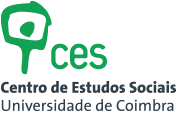Trauma além da ética da vítima
Qual era o problema?
Nas últimas décadas ocorreram alterações societais que alteraram profundamente o discurso sobre as vítimas, bem como os dispositivos de apoio às vítimas, tendo estas tomado formas legitimadas de acesso ao espaço público e de reclamação de direitos. Este reclamar de direitos e o acesso ao espaço público geram tensões nas relações entre comunidades de trauma, definidas como coletivo de pessoas afetadas, vítimas atomizadas e vítimas organizadas. Emergiram assim importantes questões que não se circunscrevem apenas às esferas do discurso e dos dispositivos, mas que indagam pressupostos materiais, simbólicos e políticos, tornando necessária a genealogia dos conceitos como vítima, trauma e stress pós-traumático. Esta genealogia implica ainda um entendimento da progressiva institucionalização e a forma como se afirma o paradigma do trauma.
O que fizemos?
O projeto “TRAUMA - Vítimas, trauma e processos institucionais: para além de uma ética da vítima” começou por partir de uma questão que era a de saber que alterações societais ocorreram para que os discursos sobre as vítimas e os dispositivos de apoio às vítimas se tornassem formas legitimadas de acesso ao espaço público e de reclamação de direitos. Partiu-se de uma perspetiva comparativa que, analisando as diferenças emergentes, procurou perceber nos diferentes casos analisados em França e em Portugal como os Estados regulam e respondem aos desafios colocados pelos acidentes e catástrofes e pela presença no espaço público das vítimas e dos seus familiares.
Cedo o contacto com as associações de vítimas dos dois países permitiu perceber que, mais relevante do que construir uma genealogia do conceito de vítima, o que era fecundo teórica e epistemologicamente era perceber como os diferentes atores presentes neste campo, do Estado às empresas, às vítimas, seus familiares e representantes procuravam circunscrever ou normalizar o impacto da vitimização nas políticas de cidadania, ou no caso das vítimas e suas associações, como a condição de vítima era potenciadora da configuração de uma lógica de cidadania e de acesso a direitos.
O projeto concluiu ainda que em Portugal, ao contrário do caso francês, não existia nenhum mecanismo de acompanhamento a longo prazo, nem mecanismos de unificação ou institucionalização da atuação do Estado face ao trauma.
O que aconteceu?
Além das conclusões que saíram do projeto, a equipa de investigação esteve no espaço público, através de várias participações em programas de rádio e televisão, onde a situação do trauma em Portugal foi debatida e avaliada. Este espaço permitiu que se abordasse a forma como os media contribuem para a generalização de um discurso em torno de acontecimentos extremos, como normalizam narrativas e formas de ler o mundo, e como dificultam o emergir de gramáticas alternativas ancoradas na experiência.
A equipa de investigação mantêm-se ativa, seguindo várias situações nacionais e internacionais, entre as quais encontramos atualmente os momentos de pós-desastre dos incêndios de 2017 e da tragédia de Pedrógão Grande.

TRAUMA
Vítimas, trauma e processos institucionais: para além de uma ética da vítima
José Manuel Mendes
1 de março de 2011 a 31 de agosto de 2014
Fundação para a Ciência e Tecnologia
Ler mais
